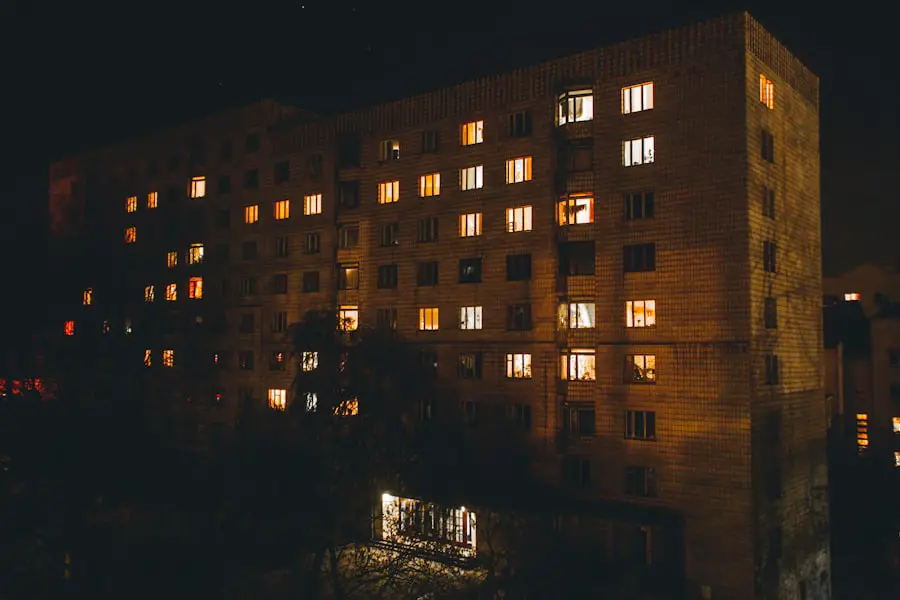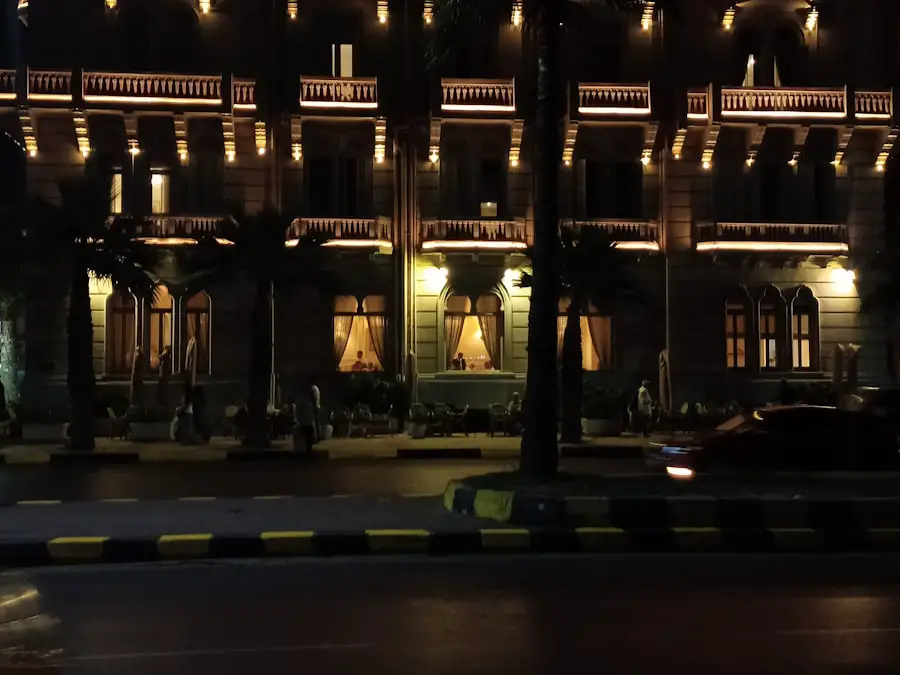“Hazbin Hotel” is an animated web series created by Vivienne Medrano, also known as VivziePop. The series first gained attention through a pilot episode released on YouTube in October 2019, which quickly amassed millions of views and a dedicated fanbase. Set in Hell, the narrative follows Charlie, the princess of Hell, who is determined to rehabilitate demons and help them find redemption.
This ambitious premise sets the stage for a unique blend of dark humor, musical elements, and social commentary, all wrapped in a vibrant and chaotic aesthetic. The series stands out not only for its storytelling but also for its bold artistic choices and character designs that challenge conventional animation norms. The pilot episode introduces viewers to a variety of characters, each with their own backstories and motivations, while also establishing the rules of this hellish universe.
Charlie’s vision of creating a hotel where demons can seek redemption is met with skepticism and ridicule from many of the inhabitants of Hell. This conflict serves as a driving force for the narrative, allowing for exploration of themes such as redemption, identity, and the nature of evil. The series has garnered attention not just for its content but also for its innovative approach to animation and storytelling, making it a significant entry in the realm of adult animated series.
Key Takeaways
- Hazbin Hotel is a popular adult animated web series created by Vivienne Medrano, known for its unique art style and dark humor.
- The art style of Hazbin Hotel is characterized by vibrant colors, intricate designs, and fluid animation, setting it apart from traditional animation.
- The characters in Hazbin Hotel are complex, dark, and twisted, each with their own demons and backstories, adding depth to the series.
- The show explores a hellish world where sinners go to be rehabilitated, offering a unique and creative take on the afterlife.
- Hazbin Hotel has sparked controversy due to its mature themes, dark humor, and portrayal of sensitive topics, dividing opinions among viewers and critics.
The Unique Art Style and Animation of Hazbin Hotel
One of the most striking aspects of “Hazbin Hotel” is its distinctive art style, which draws inspiration from various sources, including classic cartoons, modern animation, and even elements of traditional art. The character designs are exaggerated and colorful, featuring sharp lines and bold colors that create a visually arresting experience. This aesthetic is reminiscent of 1920s and 1930s animation, yet it incorporates contemporary influences that resonate with today’s audiences.
The fluidity of the animation is another highlight; each movement is meticulously crafted, showcasing the characters’ personalities through their gestures and expressions. The animation quality in “Hazbin Hotel” is particularly noteworthy given its independent production status. The pilot episode was created with a relatively small budget compared to mainstream animated series, yet it does not compromise on quality.
The use of dynamic camera angles and creative scene transitions enhances the storytelling, immersing viewers in the chaotic world of Hell. Additionally, the incorporation of musical numbers adds another layer to the animation, allowing for expressive choreography that complements the narrative. This combination of artistic vision and technical skill has set “Hazbin Hotel” apart from other animated projects, establishing it as a benchmark for independent animation.
The Dark and Twisted Characters of Hazbin Hotel

The characters in “Hazbin Hotel” are as diverse as they are complex, each embodying various aspects of sin and vice that reflect their existence in Hell. Charlie, the protagonist, is portrayed as an optimistic yet naive character who believes in the possibility of redemption for all demons. Her determination to create a haven for lost souls contrasts sharply with the more cynical attitudes of other characters, such as Alastor, the Radio Demon.
Alastor is a charismatic yet malevolent figure whose motives remain shrouded in mystery, embodying the darker aspects of Hell’s hierarchy.
Other notable characters include Angel Dust, a flamboyant spider demon who grapples with his own vices while navigating the complexities of his relationships with others in Hell. His character serves as a commentary on addiction and self-destructive behavior, providing depth to the narrative. Additionally, characters like Vaggie and Husk add layers to the story by exploring themes of love, loyalty, and betrayal within the context of Hell’s unforgiving environment.
Each character’s design reflects their personality traits and backstory, contributing to the overall richness of the series’ universe.
Exploring the Hellish World of Hazbin Hotel
| Metrics | Data |
|---|---|
| Number of Episodes | 1 (Pilot episode) |
| Release Date | October 28, 2019 |
| Creator | Vivienne Medrano |
| Genre | Adult animated musical comedy |
| Setting | Hell |
The world of “Hazbin Hotel” is intricately designed to reflect the chaotic nature of Hell itself. From the vibrant colors to the surreal landscapes, every aspect of this universe is crafted to evoke a sense of both wonder and discomfort. The setting serves as a character in its own right, influencing the actions and motivations of those who inhabit it.
Hell is depicted not just as a place of punishment but as a complex society with its own rules and hierarchies. This multifaceted portrayal allows for exploration of various themes related to morality, redemption, and the consequences of one’s actions. The environments within “Hazbin Hotel” range from opulent yet grotesque settings like Charlie’s hotel to the gritty streets where demons engage in their daily struggles.
Each location is filled with visual gags and Easter eggs that reward attentive viewers with deeper insights into the lore of this hellish realm. The series also utilizes sound design effectively; ambient noises and thematic music enhance the atmosphere, drawing viewers further into this twisted world. By creating a rich tapestry of sights and sounds, “Hazbin Hotel” invites audiences to explore its depths while grappling with the moral complexities presented throughout the narrative.
The Controversy Surrounding Hazbin Hotel
Despite its popularity, “Hazbin Hotel” has not been without controversy. Some critics have raised concerns about its portrayal of sensitive topics such as addiction, mental health issues, and sexuality. While many fans appreciate the series for its candid exploration of these themes, others argue that it sometimes crosses lines that could be seen as trivializing serious issues.
The character Angel Dust, for instance, has been both celebrated for his representation of LGBTQ+ identities and critiqued for perpetuating stereotypes associated with sex work and substance abuse. Additionally, discussions surrounding the show’s humor often spark debate among viewers. The dark comedy inherent in “Hazbin Hotel” can be polarizing; some find it refreshing and bold, while others feel it can be insensitive or inappropriate given the subject matter.
This dichotomy reflects broader societal conversations about how media should handle complex issues and whether humor can coexist with serious themes without undermining their significance. As “Hazbin Hotel” continues to evolve, these discussions will likely remain central to its reception within both fan communities and critical circles.
The Influence of Hazbin Hotel on the Animation Industry

“Hazbin Hotel” has made a significant impact on the animation industry, particularly within the realm of independent projects. Its success demonstrates that there is a viable market for adult-oriented animated content that pushes boundaries both thematically and artistically. The pilot’s reception has inspired other creators to explore similar narratives that blend humor with darker themes, leading to a resurgence in interest for adult animation that diverges from traditional family-friendly formats.
Moreover, “Hazbin Hotel” has highlighted the potential for crowdfunding and independent production models in animation. By leveraging platforms like YouTube for distribution and fan engagement, creators can bypass traditional studio systems that often impose restrictive guidelines on content.
As more independent projects emerge in response to “Hazbin Hotel,” it is likely that we will see an increase in diverse voices within animation that challenge established norms.
The Fan Community of Hazbin Hotel
The fan community surrounding “Hazbin Hotel” is vibrant and passionate, contributing significantly to its ongoing success. Fans engage with the series through various platforms such as social media, fan art, cosplay, and fan fiction. This active participation fosters a sense of belonging among viewers who share a love for the show’s unique aesthetic and storytelling approach.
Online forums and fan groups provide spaces for discussion where fans can analyze episodes, speculate about character arcs, and share their interpretations of themes presented in the series. Cosplay has become particularly popular within this community; fans often recreate intricate costumes based on their favorite characters from “Hazbin Hotel.” These events not only showcase creativity but also serve as opportunities for fans to connect with one another at conventions or online gatherings. Additionally, fan art plays a crucial role in expanding the universe beyond what is presented in the series itself; artists often explore alternate storylines or delve deeper into character backstories through their work.
This collaborative spirit enriches the overall experience for fans while simultaneously promoting “Hazbin Hotel” as a cultural phenomenon.
The Future of Hazbin Hotel: What’s Next for the Series
As “Hazbin Hotel” continues to gain traction within both mainstream media and niche audiences alike, questions about its future are increasingly prevalent among fans. Following the success of its pilot episode, there have been announcements regarding further episodes and potential expansions into other media formats such as comics or video games. These developments indicate that there is significant interest in exploring more stories set within this hellish universe while deepening character arcs established in the pilot.
Moreover, Vivienne Medrano has expressed her commitment to maintaining creative control over the series as it evolves. This dedication ensures that “Hazbin Hotel” will remain true to its original vision while adapting to audience feedback and industry trends. As new episodes are released, fans eagerly anticipate how storylines will unfold and what new characters may be introduced into this already rich tapestry of personalities.
With its unique blend of humor, artistry, and thematic depth, “Hazbin Hotel” is poised to leave an indelible mark on both its audience and the broader landscape of animated storytelling for years to come.
If you’re a fan of the dark and whimsical world of Hazbin Hotel, you may also be interested in checking out this article on the best travel gifts for women
